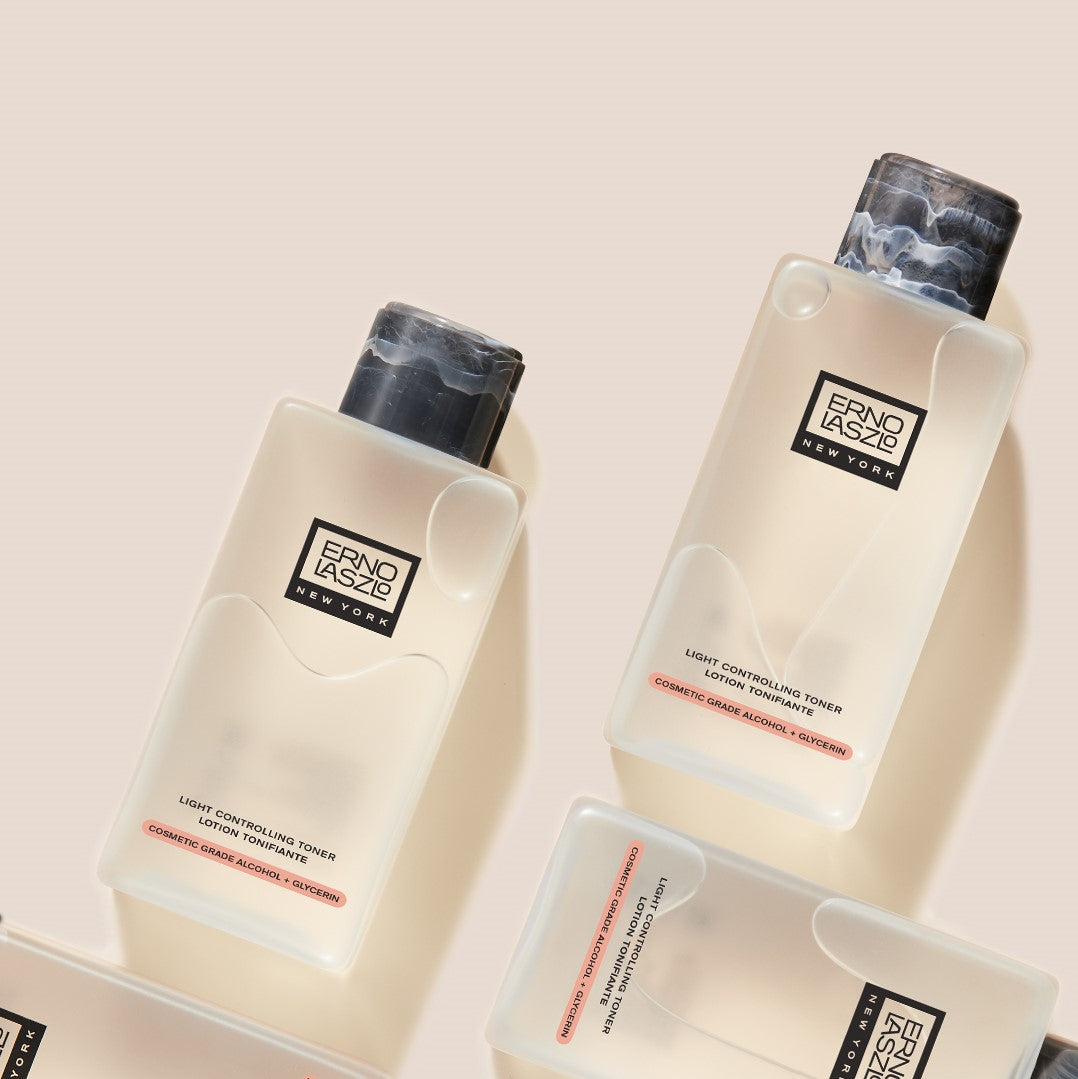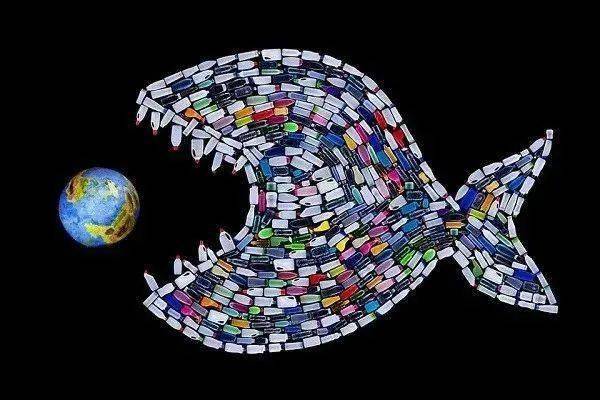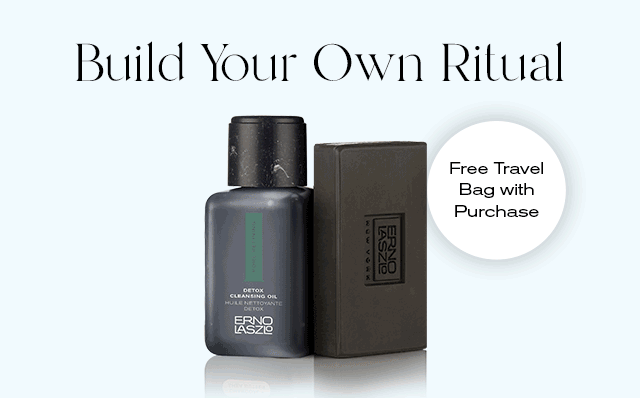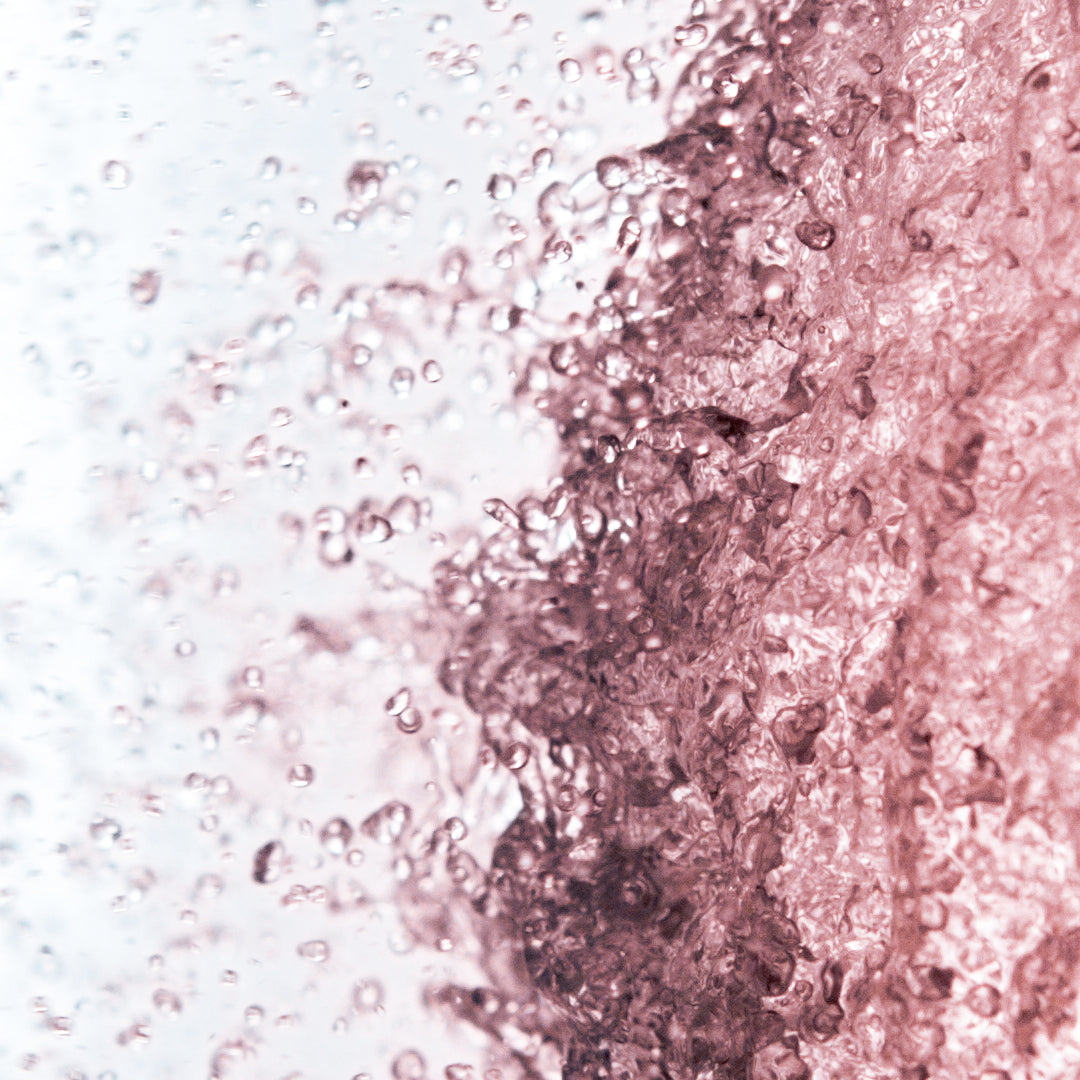
Believe In Your Sustainable Skills But Never Stop Improving
We sat down with our Packaging Sourcing & Development Coordinator Hillary Tumbali; she is passionate about Sustainability and creating a better planet. Hillary speaks about her tips to leading a more sustainable lifestyle and the steps Erno Laszlo is taking to continue our sustainability mission.

Tell Us More About Your Role as the Package Sourcing Development Coordinator?
I’ve been working as the Package Sourcing and Development coordinator for Erno Laszlo for about 10 months (prior to this, I was the Operations Intern). I still work under Operations and work closely with our Creative team and New Product Development team to launch new products. My job is focused on developing and sourcing our packaging, from the jars to the boxes they come in.
 How has Your Role Involved in the Process Of Transitioning Our Products to Become Clean & Sustainable?
How has Your Role Involved in the Process Of Transitioning Our Products to Become Clean & Sustainable?
The other part of my role, in which I work with our COO and rest of the EL team, is coordinating our sustainability initiatives. I track sustainability trends by looking at new product launches, packaging innovations, and new business strategies, not only in the beauty realm but also from other categories like food & beverage and household products, all under the CPG umbrella.
In addition to tracking trends, I support in executing and transitioning our products into more sustainable packaging. This packaging transition is in tandem with our clean formula transition as we saw it would be more operationally efficient to improve our formulas and packaging simultaneously.
What Have you Learned During the Sustainability Process?
Unfortunately, there isn’t a silver bullet that will undo climate change and its lasting effects. It’s imperative that companies be more transparent about where they are in this journey.
I think the biggest lesson learned during this whole process is that sustainability is truly a journey.
Companies must examine and evaluate their current strategies: if there are any operational inefficiencies or risks that taking on a sustainability strategy can improve or mitigate. As more knowledge and innovations that improve our environmental impact, companies must keep an eye out and adjust accordingly.
On the other hand, consumers must adapt to the shift in appearance or learn new processes. Since consumers’ wants drive what companies produce, we have to shift our expectations, specifically what we expect luxury beauty should look like. Within the beauty industry, including Erno Laszlo, an effective formula is the key driver. It is what we truly invest in as a science-led brand so there may be trade-offs with our packaging as we move into more sustainable solutions.
Why is it Important for Brands to Become Sustainable in the Beauty Industry?
The beauty industry is a large contributor to GHG emissions and land and water pollution. All these issues stem from the considerable amount of plastic produced annually. Particularly in the beauty industry, we create a lot of waste, specifically in the form of plastic. According to Euromonitor International, about 7.9 billion units in 2018 were produced for beauty and personal care.
If we do not act fast, we may not have the resources to create our products or the customer base. To maintain the world we live in and slow down the climate destabilization as much as possible, brands must include sustainability into their ethos and claim responsibility.

This sentiment must trickle down from the higher ranks, your C-suite, into the rest of the company. In our case, EL’s executive team and our CEO specifically have called for the change and continuously are supporting the initiative. We are doing our best to not greenwash and be as transparent as possible.
We are proud to join the Ellen MacArthur Foundation’s call for the implementation of Extended Producer Responsibility (EPR) for packaging, together with +150 leading businesses and organizations.
We need a circular economy for packaging, in which it never becomes waste or pollution. Packaging that cannot be eliminated or reused must be kept in circulation - in the economy, out of the environment.
For this to happen, we need dedicated, ongoing and sufficient funding for collection, sorting and recycling. EPR is the only proven and likely way to achieve this, and prevent tens of millions of tons of packaging from ending up in the environment every year. We are ready to step up and be part of the solution. Read the full statement: plastics.emf.org/EP
Tell Us About Our Partnership with Ellen MacArthur Foundation. What is the New Plastics Economy Global Commitment?
The Ellen MacArthur Foundation aims to accelerate the transition to the circular economy. The circular economy offers a positive way forward by redefining growth to focus on society-wide benefits. Such an economy is built on three principles: design out waste and pollution, keep products and materials in use, and regenerate natural systems. This system will replace the current ‘take-make-waste’ extractive industrial model, which is inherently wasteful and relies on the consumption of finite resources.
In 2018, the Ellen MacArthur Foundation in collaboration with the UN Environment launched the New Plastics Economy Global Commitment, which targets to address plastic waste and pollution at its source. Signatories must commit to a set of ambitious targets by 2025 that aim to eliminate unnecessary plastic items, create plastic that can be safely reused, recycled, or composted, and circulate all materials to keep in the economy and out of the environment.
In December 2019, we became a signatory to the New Plastics Economy Global Commitment, based on guidance from Better Future Factory, a sustainability design agency. Together, we established key milestones and tasks to help Erno Laszlo become compliant by 2025. Our Global Commitment that has been updated as of July 2021 can be found here.
If you would like to know more about the Ellen MacArthur Foundation and the New Plastics Economy initiative, please click on the links below:
How is Erno Laszlo Changing Their Products to be Sustainable?
After walking through the results of a plastics scan, which BFF conducted, we noticed some of our products contain unrecyclable plastic and contained excessive plastic weight. From there, we moved forward with a simplistic approach: concentrating on the removal of unnecessary packaging, light-weighting the remaining packaging, and looking for alternative packages in more likely to be recycled plastics. Some highlights listed below: (More information listed in our Global Commitment).
-
Firstly, we removed our famous but infamous soap dishes that were made of ABS, an unrecyclable plastic. Our soap bars are now wrapped in parchment and Post-Consumer Waste FSC carton.

- The second initiative for us to remove single-use packets for sampling. Sample sachets currently do make up a large portion of the beauty industry’s waste. (Unfortunately, we still do have sachets in our line, housing our pink powder in VTM/ HTSVT and our Multi-Task Eye Serum Mask. More information in next question.)
- As for the rest of our plastic packaging, we wanted to ensure that we were using plastics that had an accessible and established recycling stream. We opted to only use packaging with PET, PP. and PE. We defined these as our “good plastics” and other plastic resins as “sin plastics”. Therefore, consumers can comfortably throw their packages into their recycling bin, knowing that it will end up at their local MRF.
- Along with our plastics, we looked at our secondary packaging: we right-sized cartons instead of leaving it enlarged, removed leaflets, and moved into Post-Consumer Waste FSC paperboard.
What are Some Other Sustainable Initiatives that are in the Works?
One challenge we saw with an item were the pink powder sachets and Multi-Task Eye Serum Masks, which I mentioned above. However, we are working with Better Future Factory to find the best alternative material that is recyclable to replace the multi-layered foil sachets. Specific challenges come with finding the optimal material that has a sufficient moisture and oxygen barrier to protect the product.

Another challenge came with finding an all-plastic pump because there were no pumps commercialized that fit our bill. The metal springs in most pumps make it not recyclable. So unfortunately, our cleansing oil pumps need to be screwed off from their bottle and thrown into the trash or reused!
Hopefully, in the near future, we will soon have an all-plastic pump as we have found some options that need to be tested with our cleansers. However, we do have new serum products coming out that will include a pump with a rubber valve rather than a metal spring and made of one material, so it will be an easy toss in the recycling bin for all consumers.
In addition to those challenges, we are looking into continuously improve the sustainability of our packaging like including post-consumer recycled plastic (PCR plastic) along with designing and sourcing refillable packages to reduce our production of virgin plastic.

Most importantly, to attain circularity and account for the materials we produce, we are starting a take-back program in September, which is super exciting! (Def look out for that!) Erno Laszlo customers are going to be able to return empty products to us in the coming months. With all the packages returned, they will be sorted, shredded, and melted down to create new plastic pellets for us to reuse in packaging or upcycle.
What are the Top 3 Facts you Learned?
-
A sad number fact: in the US, about 14% of plastic is recycled. The rest goes to the landfill :( If we are going at the same rate, there will be more plastic in the ocean than fish. So, it’s imperative that we as an industry and consumers change our strategies and habits. (Source: Containers and Packaging: Product-Specific Data | Facts and Figures about Materials, Waste and Recycling | US EPA)

- Wish-cycling is throwing things into your recycling bin without knowing for certain that it is recyclable. Pay attention to what you're throwing into the recycling bin versus the trash bin and compost bin. Wish-cycling is actually very harmful because recycling things like your sachets, which is trash, will disrupt the recycling process at your local recycling facility. When recycling facilities sort, in some cases, if they find trash in one batch, that piece of trash is thought to contaminate the rest of the batch. So rather than one item thrown away, a bulk is thrown in to the landfill and thus creates more waste & pollution. Other unrecyclable items include multi-layered plastic tubes and other daily items like plastic bags, yogurt cups, pizza boxes. Best practice to follow the brand’s disposal instructions or check your local recycling facility. If not, throw it out. (What Is Recycling & What to Recycle | Waste Management (wm.com))
- Another interesting fact is that darker colored plastics are not easily detectable at recycling facilities because some MRF (material recovery facilities) use infrared sensors to identify and sort the plastic resins. So unfortunately, our existing black caps currently may not be recycled, and that is why we are looking for options like using black identifiers to signal to the recycling facility. I’ve seen another company, Sprite transition into clear bottles rather than their famous green bottles for this very reason. (Sprite bottles are going clear to make them easier to recycle (fastcompany.com))
What are Some Other Tips and Tricks you can Integrate into Your Skincare Routine to Become More Sustainable?
- Remove make up wipes from your routine. These wipes cause a lot of waste. Move into the popular Erno Laszlo double cleanse method to completely remove all the gunk from your face. Start with an oil-based cleanser like our Detox Cleansing Oil and finish off with a water-based cleanser like our Sea Mud Deep Cleansing Bar.

- Look into buying reusable cotton pads and swabs over their single-use counterparts. I have transitioned into reasonable cotton rounds, specifically when I use an exfoliating toner. Once I finish using my set, I throw them into the wash with other laundry. And honestly, with more hydrating toners, I just use my hands to press it into my face (pro tip because you don’t waste product). I also am looking at buying reusable cotton swabs to use for spot treatments.
- A small tip, aim to use the little spatulas that come with creams, like our Phelityl Night Cream. Use it with other creams or serums, instead of throwing it away, especially if you like to keep your creams sanitary.
- Reuse sample/ smaller packages as travel size products. Instead of throwing away your sample products or smaller bottles and jars, keep them for any of your future travels. I either pour from the full-size into the small size or any other products as well. I actually just did this for a weekend staycation: I took our VTM vials and filled one each for my shampoo, conditioner, and body wash. It fits great into my travel bag and I didn’t have to spend extra money on travel sizes.

- Repurpose/ upcycle your packages out of your skin care routine. Before disposing of your package, think of other ways you can upcycle or bring it new life. (Same goes for candles!) I've seen some creators on Tik Tok refurbishing their jars and decorating them to be little pots for their plants. Others have repurposed them to store little pins or rubber bands. Others love the beautiful luxury packaging too much and just use to hold their jewelry.
- If you finished your product but don’t know how to recycle it, collect all your empties and bring it into Nordstrom. Nordstrom has partnered with Terracycle to establish Beautycycle.
- For unfinished products, try to: 1) give it away to a friend 2) donate to Project Beauty Share 3) try it on your body or hands. Products, especially like our creams and moisturizers, are safe to try on your arms and hands. Two people from our EL family have reported Phelityl Night Cream and Phelityl Day Lotion SPF 15 are wonderful hand creams. Best practice is to extend a product’s life cycle rather than throwing it away into the trash.
More Resources to Learn About Sustainability!
What Is the circular economy? (ellenmacarthurfoundation.org) – Ellen MacArthur Foundation, great website for learning about the circular economy
Packaging, the beauty industry’s news arms race – interesting article concerning luxe packaging and the sustainable solutions
Impact | Fast Company – news on innovations and business ESG strategies
Instagram accounts:
Super informative Podcast on Sustainability:
How to Save a Planet with Dr. Ayana Elizabeth Johnson & Alex Blumberg
Photo 5, courtesy of Garbo Glassware
Photo 9, courtesy of Ellen Macarthur Foundation




Leave a comment
This site is protected by hCaptcha and the hCaptcha Privacy Policy and Terms of Service apply.